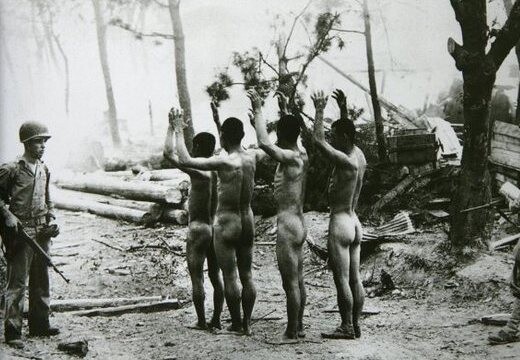hankyoreh
Links to other country sites 다른 나라 사이트 링크
Human Rights body says gov't must pay special Korean War troops

In 1951, when the fighting in the Korean War became increasingly brutal, an 18-year-old South Korean man only identified by his surname, Kim, enlisted at the Korea Liaison Office (KLO). While he knew the KLO was an intelligence unit operating in and out of North Korea, his mission was more dangerous than even he could have expected.
He was to escort spy agents to North Korean ports by a specially fitted vessel disguised as a fishing boat. The agents were dispatched to North Korea to spy on the communist country's military facilities.
While he was carrying out his operations, Kim had come close to being killed by North Korean soldiers. During one close call, his boat was detected by North Korean coast guards and he was on the brink of being shot, but managed to escape.
The KLO unit was established in 1949 by an intelligence operation unit of the U.S. Far East Command, which was later absorbed into the U.S. Pacific Command. After the Korean War broke out in August 1950, the KLO unit became a part of the U.S. Army's unit 8240. The number of South Koreans that served in this KLO unit throughout the war is believed to be between 1,000 and 6,000.
Kim Sang-gi, an official at the KLO Veterans' Association, said, "There was no compensation given when members were killed or went missing during operations or training. The situation was the same when the unit was dismantled."
The U.S. government also did not pay the unit any wages or compensation for their efforts in very dangerous missions, and rejected any requests for such renumeration following the war. In 2004, some veterans of the KLO unit filed a compensation petition with the U.S. government. But the U.S. rejected the petition, saying that the U.S. had no duty to compensate KLO veterans because they are not considered as having been employed or contracted by the U.S. Armed Forces.
In January 2004, the South Korean government enacted a law on compensation for special-forces agents. However, efforts by KLO veterans were frustrated once again because the law does not apply to agents who were part of foreign military units or units established before the Korean military's intelligence unit was established.
On April 12, the National Human Rights Commission advised Korea's National Assembly speaker and defense minister to swiftly pay compensation to veterans of the KLO unit, saying in an official statement statement, "Special agents that were part of foreign military units sacrificed themselves for the Korean War with the common mission of protecting the nation. Their actions as well as their physical and mental pain suffered are not different from those that were part of Korean units."
Please direct questions or comments to [englishhani@hani.co.kr]
Editorial・opinion
![[Editorial] Perilous stakes of Trump’s rhetoric around US troop pullout from Korea [Editorial] Perilous stakes of Trump’s rhetoric around US troop pullout from Korea](https://flexible.img.hani.co.kr/flexible/normal/500/300/imgdb/original/2024/0509/221715238827911.jpg) [Editorial] Perilous stakes of Trump’s rhetoric around US troop pullout from Korea
[Editorial] Perilous stakes of Trump’s rhetoric around US troop pullout from Korea![[Guest essay] Preventing Korean Peninsula from becoming front line of new cold war [Guest essay] Preventing Korean Peninsula from becoming front line of new cold war](https://flexible.img.hani.co.kr/flexible/normal/500/300/imgdb/original/2024/0507/7217150679227807.jpg) [Guest essay] Preventing Korean Peninsula from becoming front line of new cold war
[Guest essay] Preventing Korean Peninsula from becoming front line of new cold war- [Column] The state is back — but is it in business?
- [Column] Life on our Trisolaris
- [Editorial] Penalties for airing allegations against Korea’s first lady endanger free press
- [Editorial] Yoon must halt procurement of SM-3 interceptor missiles
- [Guest essay] Maybe Korea’s rapid population decline is an opportunity, not a crisis
- [Column] Can Yoon steer diplomacy with Russia, China back on track?
- [Column] Season 2 of special prosecutor probe may be coming to Korea soon
- [Column] Park Geun-hye déjà vu in Yoon Suk-yeol
Most viewed articles
- 1Behind-the-times gender change regulations leave trans Koreans in the lurch
- 260% of young Koreans see no need to have kids after marriage
- 3Family that exposed military cover-up of loved one’s death reflect on Marine’s death
- 4[Guest essay] Preventing Korean Peninsula from becoming front line of new cold war
- 5Yoon’s revival of civil affairs senior secretary criticized as shield against judicial scrutiny
- 6Japan says its directives were aimed at increasing Line’s security, not pushing Naver buyout
- 7‘Free Palestine!’: Anti-war protest wave comes to Korean campuses
- 8Korean president’s jailed mother-in-law approved for parole
- 9S. Korean first lady likely to face questioning by prosecutors over Dior handbag scandal
- 10Marines who survived flood that killed colleague urge president to OK special counsel probe